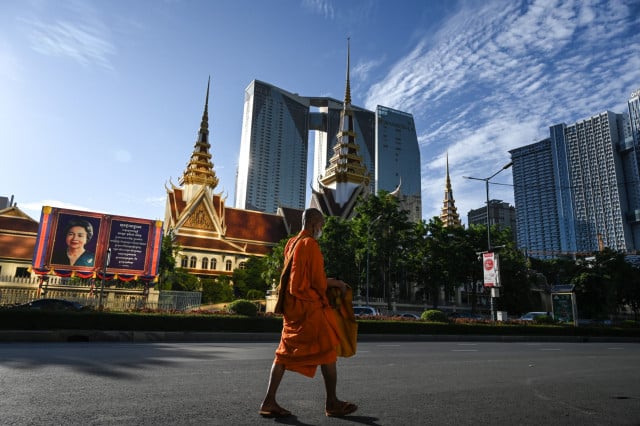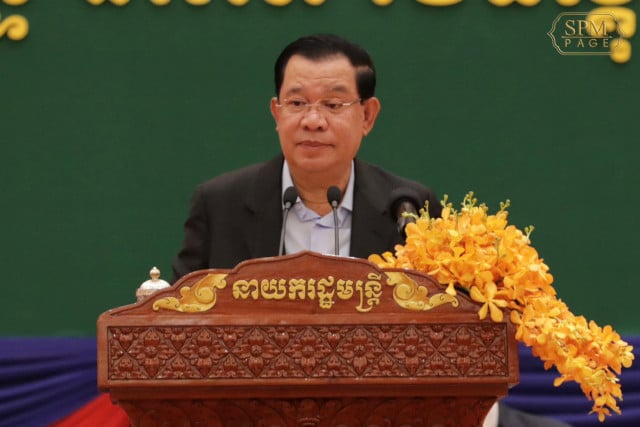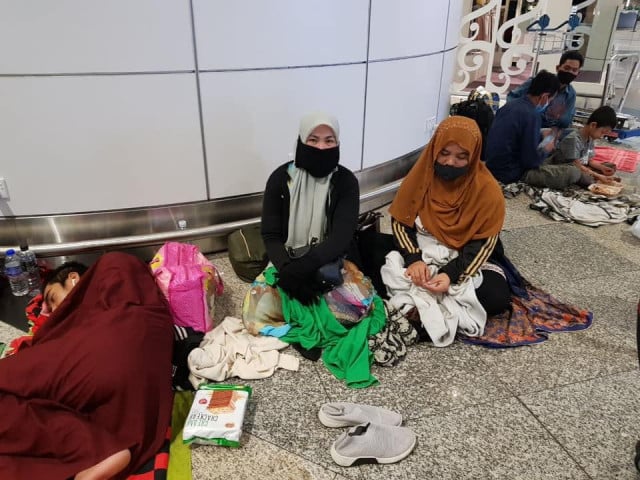Anti-Poll Boycott Amendments Pass National Assembly

- By Phoung Vantha
- June 23, 2023 7:29 PM
PHNOM PENH--The National Assembly has backed election law amendments which would limit the ability of anyone who boycotts next month’s national election to stand in future ballots.
Other provisions, passed unanimously on June 23, include a new crime of incitement, which means impeding the elections and which attracts heavy fines.
Activists criticised the amendments as inconsistent with Cambodia's international obligations and an impermissible limitation on freedom of expression.
However, Interior Minister Sar Kheng said the eight-article draft law was to reform the right to stand for election to enhance the value of pluralist liberal democracy stated in the Constitution.
The amendments would also promote accountability of elected political leaders at national and sub-national levels, he said.
Approval of the amendments was made at a National Assembly session chaired by its President Heng Samrin. They must be considered by the Senate and approved by the Constitutional Council before being signed into law by the King.
Breaches of the law would attract fines of five to 20 million riel ($1,200 to $5,000).
Last week, Prime Minister Hun Sen urged the National Assembly to revise the law so that anyone who does not vote in the general election on July 23 would be barred from contesting future elections.
No party has called for a boycott but some opposition leaders and supporters have reportedly said they will not vote after the Candlelight Party was barred from standing following a dispute over the non-lodgment of documents.
The amendments mean that a candidate would have to have voted in the two previous elections to run.
“I completely agree with the contents of the draft law,” Sar Kheng said at the National Assembly session.
It aimed to protect against political tricks aimed at destroying elections.
“This amendment will promote the value of democracy, multiple parties, including promoting the responsibility of political leaders who wish to stand as candidates for elections.”
The amendments include a “transition” clause for the 2024 Senate election whereby a candidate would have to show that they voted in only the “last election”.
This “last election” clause would also apply to the provincial and district council election law.
The “incitement” term has been inserted into the National Assembly and commune council election laws and can be used to ban people from elections for five years.
Cambodian Center for Human Rights executive director Chak Sopheap said the amendments were inconsistent with Cambodia's international obligations.
“Criminalising calls to boycott non-compulsory votes constitutes an impermissible limitation on the right to freedom of expression as guaranteed by international human rights instruments,” she said.
“In the same vein, banning people from running for office just because they choose not to vote amounts to a violation of their right to stand for election.
“Abstaining from voting is a legitimate way of expressing one's opinion about the existing political order. Those who opt for doing so should therefore not be subject to sanctions that would undermine their future ability to participate in public affairs.
“This new development, which follows the recent disqualification of the opposition Candlelight Party, constitutes yet another alarming sign of the lack of free and fair electoral guarantees for the upcoming polls,” she said.
“Genuine elections are necessary and a vital component of a democratic society that safeguards and promotes human rights.
“The government should therefore be reminded of its duty to respect, protect and the right to take part in the conduct of public affairs and the right to vote and stand for election, in line with its obligations under international human rights law.”















